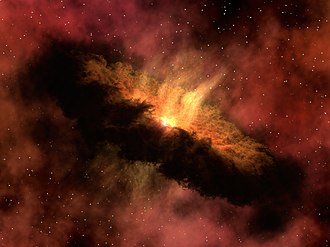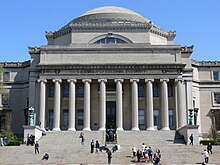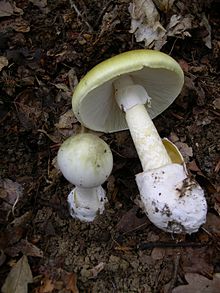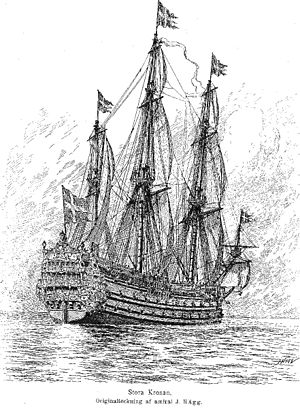Portal:Science
Science portal

Science is a systematic discipline that builds and organises knowledge in the form of testable hypotheses and predictions about the universe. Modern science is typically divided into two or three major branches: the natural sciences (e.g., physics, chemistry, and biology), which study the physical world; and the behavioural sciences (e.g., economics, psychology, and sociology), which study individuals and societies. The formal sciences (e.g., logic, mathematics, and theoretical computer science), which study formal systems governed by axioms and rules, are sometimes described as being sciences as well; however, they are often regarded as a separate field because they rely on deductive reasoning instead of the scientific method or empirical evidence as their main methodology. Applied sciences are disciplines that use scientific knowledge for practical purposes, such as engineering and medicine. (Full article...)
Featured article -
Featured pictures
Vital articles
Psychology is the scientific study of mind and behavior. Its subject matter includes the behavior of humans and nonhumans, both conscious and unconscious phenomena, and mental processes such as thoughts, feelings, and motives. Psychology is an academic discipline of immense scope, crossing the boundaries between the natural and social sciences. Biological psychologists seek an understanding of the emergent properties of brains, linking the discipline to neuroscience. As social scientists, psychologists aim to understand the behavior of individuals and groups. (Full article...)
Did you know...
- ... that Flyover, a 2023 science fiction novel by an American author, portraying a dystopian future where part of the US becomes a theocracy, was published in French but not in English?
- ... that the board game Cytosis was endorsed by the Journal of Cell Science?
- ... that the science-fiction video game The Anacrusis is named after a musical term?
- ... that the 14th-century house Maison de Jeanne was positively dated with the science of dendrochronology?
- ... that Charlie Jane Anders wrote preferred pronouns into her science fiction novel Victories Greater Than Death because she thought that alien gender would be unclear to humans?
- ... that machine learning can be used to recognize rock fractures?
Get involved
| This portal needs to be updated. Please help update this portal to reflect recent events or newly available information. Relevant discussion may be found on the talk page. |

|

|
Science News
- 10 October 2024 –
- In its annual Living Planet report, the World Wildlife Fund estimates that wild populations of animal species have decreased over 70% since 1970, with some high-biodiversity areas seeing up to 95% declines. (DW)
- 10 October 2024 – Tomb of Christopher Columbus
- Researchers from the University of Granada confirm that bones lying in the Seville Cathedral in Seville, Andalusia, Spain, belonged to Christopher Columbus. (ABC Spain)
- 9 October 2024 – Nobel Prize in Chemistry
- This year's Nobel Prize in Chemistry is jointly awarded to British computer scientist Demis Hassabis and American chemist John M. Jumper for their work on protein structure prediction, and to American biochemist and computational biologist David Baker for his work on computational protein design. (The New York Times) (Nobel Prize)
- 8 October 2024 – Nobel Prize in Physics
- American physicist John Hopfield and British-Canadian computer scientist Geoffrey Hinton are awarded this year's Nobel Prize in Physics "for foundational discoveries and inventions that enable machine learning with artificial neural networks". (The Guardian)
- 24 September 2024 –
- Scientists from the University of Waterloo announce that they have positively identified bones found on King William Island in Nunavut, Canada, as those of James Fitzjames, captain of HMS Erebus during Franklin's lost expedition. (CBC News)
- 23 September 2024 – Deforestation of the Amazon rainforest
- Climate researchers report that since 1985, deforestation in the Amazon has caused the loss of an area of rainforest equal to the combined area of France and Germany. (France 24)




























































